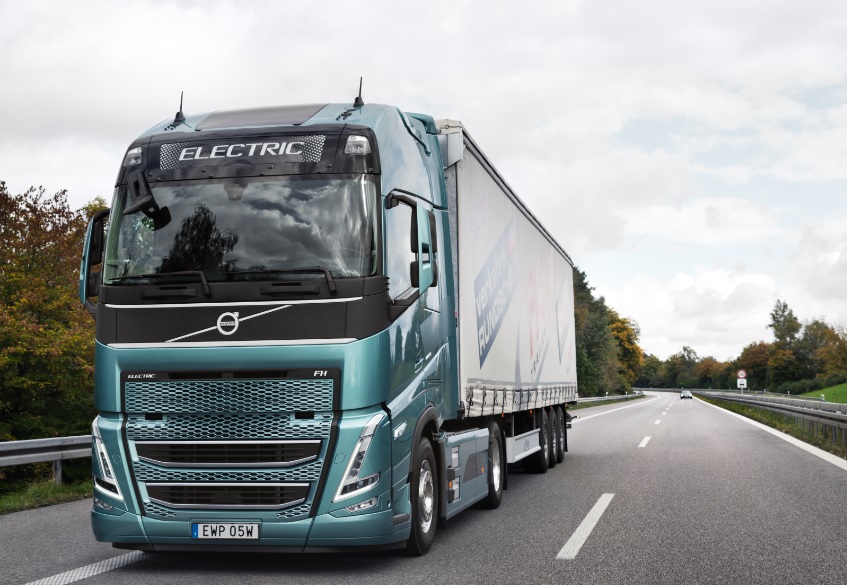Heavy-duty electric truck excels in both range and energy efficiency during mixed public road environment trials
An independent energy efficiency test with a fully loaded heavy-duty electric Volvo truck has been performed on public roads in Germany. The electric truck exceeded its official range and used 50% less energy than its diesel counterpart.
The vehicle under test was a Volvo FH Electric, a zero-exhaust emission vehicle with 490 kW of continuous power and a gross combined weight of 40 tonnes. German independent truck specialist and writer, Jan Burgdorf performed the test on the long established “Green Truck Route”, a 343 km long route that includes a variety of motorways, hilly terrains and tighter roads that is used for testing different manufacturer’s trucks in a wide range of conditions.
Rather than using an enclosed private proving ground, this test route is 100% on public roads and has been used by Burgdorf for performing fuel tests for several years and is well known by the European truck industry. The route is divided in five different parts with individual characteristics and is corrected and adjusted to avoid disturbances such as unplanned stops by, for example, traffic jams.
According to Burgdorf, when driving the Volvo, it is as agile, or even more agile, than the diesel version. “Drivers will be very surprised about how easy it is to drive, how quiet it is and how well it responds. There are no vibrations whatsoever,” he says.
Regional Distribution
The Volvo FH Electric was designed as a regional distribution vehicle and, according to Volvo, the batteries were designed with the driving profile required for those kind of routs in mind. Nonetheless, on the long haul test route, the subject vehicle achieved an average speed of 80 kph over the whole distance, which was on par with the Volvo FH with a diesel engine and the I-Save fuel efficiency package. Based on an energy consumption of only 1.1 kWh/km, the electric truck had a total range of 345 km on one charge.
According to Tobias Bergmann of Volvo Trucks, the test results show that it is possible to drive up to 500 km during a regular working day with a short stop for charging.
“The electric driveline is very efficient, making the all-electric truck a very powerful tool for reducing CO2 emissions,” he says.
Volvo Trucks goal is that electric vehicles will account for half of its truck sales in 2030 and in 2040, 100% well-to-wheel based CO2-reduction for new trucks sold.
“We are committed to the Paris Agreement on climate change. Science-based targets have been set and we are taking action to fast-forward the development to dramatically lower CO2 emissions related to on-road freight transports. I believe that the broad electric range we already have on the market is very clear proof of that,” concludes Tobias Bergman.
The FH Electric is part of the new range from Volvo comprising six all-electric trucks designed to cover different transport environments. The Volvo FH, FM and FMX Electric models have a GCW of up to 44 tonnes and full production for these models is slated for the second half of this year.
The Volvo FL and FE Electric, for city distribution and refuse handling duties, is already underway and began in 2019 with sales taking place across Europe.
- UK manufacturing steps up to COVID-19 crisis - April 2, 2020
- Clustering Innovation - March 12, 2020
- A Global Monitor - March 6, 2020

